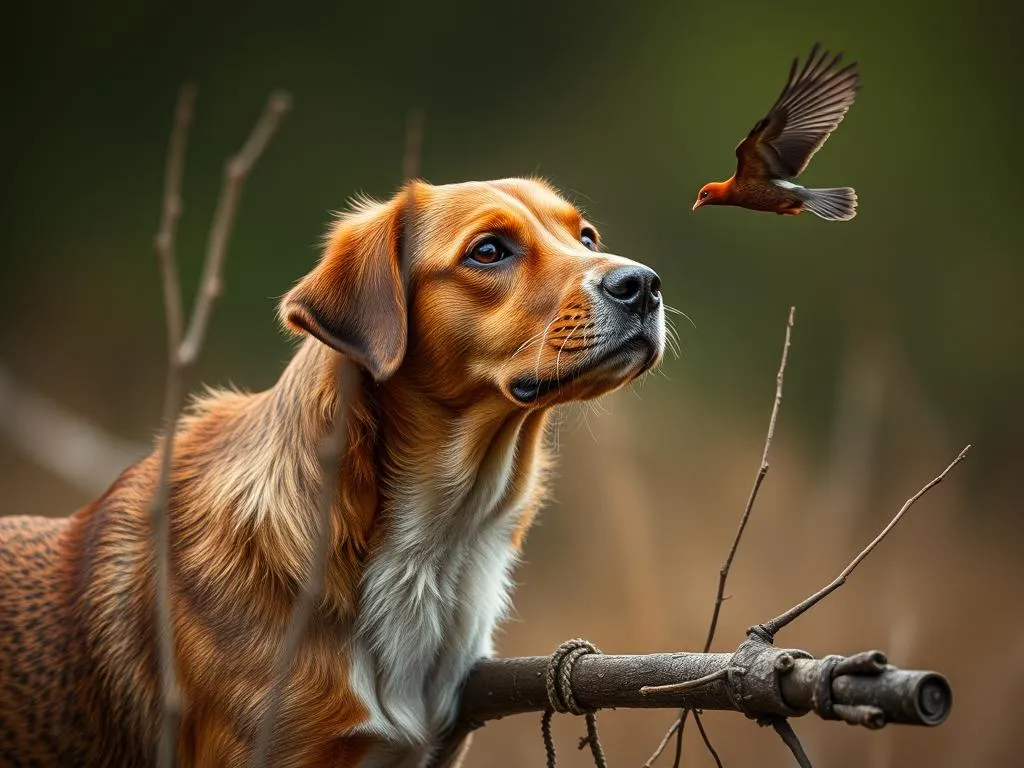
Introduction
Bird hunting dog breeds are specifically developed and trained to assist hunters in locating and retrieving birds during hunting expeditions. These breeds have unique characteristics that make them invaluable companions in the field, combining strong instincts with a keen ability to learn. Whether it’s flushing, pointing, or retrieving, these dogs excel in various hunting scenarios, providing both utility and companionship.
The purpose of this article is to educate readers about the different bird hunting dog breeds, their distinctive traits, training methodologies, and care requirements. Understanding these aspects can help prospective owners make informed decisions about which breed aligns best with their lifestyle and hunting preferences.
Bird hunting is a time-honored sport that not only tests the skills of the hunter but also highlights the incredible capabilities of hunting dogs. These breeds play a crucial role in the sport, assisting in tracking scents, pointing out game, and retrieving birds effectively. Their training and companionship can enhance the overall experience of bird hunting.
Characteristics of Bird Hunting Dog Breeds
Physical Traits
Bird hunting dog breeds vary widely in size and weight, with some breeds being compact and agile, while others are larger and more robust. Common sizes range from the smaller Cocker Spaniel, weighing around 20-30 pounds, to larger breeds like the Labrador Retriever, which can weigh anywhere from 55 to 80 pounds.
Coat types among these breeds also differ. Many possess water-resistant coats, which are essential for hunting in wet environments. For example, Golden Retrievers have a dense, water-repellent outer coat that protects them from the elements, while German Shorthaired Pointers feature a short, sleek coat that allows for easy movement through dense underbrush.
Temperament
The temperament of bird hunting dogs is another critical factor that influences their effectiveness in the field. Most breeds are known for their intelligence, eagerness to please, and high energy levels. These traits are vital for hunting success, as they contribute to a dog’s ability to follow commands and work harmoniously with their human counterparts.
A friendly and sociable demeanor is also essential, especially for breeds like the Golden Retriever, which thrives on human interaction. Conversely, some breeds like the English Pointer may exhibit a more independent streak, requiring consistent training and leadership to ensure they remain focused during hunts.
Instincts and Abilities
Bird hunting dog breeds exhibit a range of natural instincts and abilities that make them exceptional partners in the field. Retrievers, for instance, are renowned for their fetching instincts, which allow them to retrieve game efficiently. Hunting breeds like the English Setter are skilled at pointing, using their keen sense of smell to locate birds and signal their presence to the hunter.
In contrast, German Shorthaired Pointers showcase versatility, excelling in both retrieving and pointing. This adaptability makes them ideal for various hunting scenarios, from upland game birds to waterfowl.
Popular Bird Hunting Dog Breeds
Retrievers
Labrador Retriever
The Labrador Retriever is one of the most popular bird hunting dog breeds, known for its friendly nature, intelligence, and excellent retrieving skills. Labradors are well-suited for waterfowl hunting due to their strong swimming abilities and thick, water-resistant coat. Training them for retrieval involves consistent practice, focusing on commands like “fetch” and “drop,” and using positive reinforcement to encourage desired behaviors.
Golden Retriever
Similar to Labradors, Golden Retrievers are also exceptional hunting companions. They possess a gentle temperament, making them ideal family pets as well. Their hunting capabilities include a solid retrieve and an impressive ability to track scents. Training should emphasize patience and socialization, as these dogs thrive on human interaction and can be easily distracted without proper guidance.
Setters
English Setter
The English Setter is recognized for its elegant appearance and exceptional hunting skills. This breed is known to be an effective pointer, using its keen sense of smell to locate birds. Grooming needs for English Setters are moderate; their long, flowing coat requires regular brushing to prevent matting and tangles. Early socialization is crucial to ensure they are well-adjusted and responsive during hunts.
Gordon Setter
The Gordon Setter is larger and more robust than its English counterpart, with a distinctively long, silky coat. Known for their loyalty and intelligence, they excel in both pointing and retrieving. Socialization and consistent training are essential for Gordon Setters, as they can be strong-willed. Their grooming needs are higher due to their coat, requiring regular brushing to maintain its health and appearance.
Pointers
English Pointer
The English Pointer is renowned for its incredible speed and agility in the field. This breed is an expert at locating game and will point and hold its position until the hunter arrives. Training can be challenging due to their independent nature; however, establishing a strong bond through consistent training and positive reinforcement can yield excellent results.
German Shorthaired Pointer
The German Shorthaired Pointer is highly versatile and adaptable, excelling in various hunting environments. They possess a blend of retrieving and pointing abilities, making them suitable for both upland and waterfowl hunting. Their exercise requirements are substantial, necessitating regular physical activity and mental stimulation to keep them engaged and happy.
Spaniels
Cocker Spaniel
The Cocker Spaniel is a compact, energetic breed that is excellent for flushing game. Their friendly nature and eagerness to please make them a delightful addition to any hunting team. Training should focus on obedience and retrieving, with an emphasis on socialization to ensure they are comfortable in various environments.
Springer Spaniel
The Springer Spaniel is known for its enthusiasm and hunting efficiency. This breed excels at both flushing and retrieving, making it ideal for bird hunting. Regular exercise and mental stimulation are crucial to keep them fit and happy. Their grooming needs are moderate, requiring regular brushing to maintain their coat and prevent matting.
Training Bird Hunting Dogs
Basic Training Principles
Training is an essential aspect of owning a bird hunting dog breed. Basic obedience training lays the foundation for successful hunting, ensuring that the dog can follow commands and behave appropriately in various situations. Key commands every bird hunting dog should know include “sit,” “stay,” “come,” and “heel.”
Positive reinforcement techniques, such as treats and praise, are effective in encouraging desired behaviors. Consistency and patience are vital elements in training; both the trainer and the dog should be committed to regular practice.
Specialized Hunting Training Techniques
Once basic training is complete, specialized hunting training can begin. Field training introduces the dog to the hunting environment, allowing them to practice skills like scent detection and retrieving. This phase may involve using dummies or scent trails to simulate hunting scenarios.
Scent training is particularly important, as it helps the dog learn to track and locate birds. Using birds or bird scent during training exercises can enhance their instincts and retrieving abilities.
Socialization
Socialization is crucial for the success of hunting dogs. Exposing them to different environments, people, and other animals can help them become well-adjusted and confident in various situations. Socialization should begin early, ideally during puppyhood, and continue throughout the dog’s life to ensure they remain comfortable and focused during hunts.
Care and Maintenance
Dietary Needs
Providing the right nutrition for bird hunting dogs is vital for their performance and overall health. High-energy foods that meet the specific dietary requirements of active breeds are essential. Look for dog food that contains high protein levels to support muscle growth and energy needs during hunting activities.
Exercise Requirements
Regular exercise is paramount for maintaining the physical health and mental well-being of bird hunting dogs. These breeds thrive on activities that challenge them physically and mentally. Daily walks, runs, and play sessions are essential, along with opportunities for off-leash activities in safe environments.
Health Considerations
Bird hunting dog breeds can be prone to specific health issues, including hip dysplasia, ear infections, and obesity. Regular veterinary check-ups are crucial for early detection and prevention of potential health problems. Providing a balanced diet, regular exercise, and preventive care can significantly improve the overall wellness of these active dogs.
Choosing the Right Bird Hunting Dog
Assessing Lifestyle Fit
When choosing a bird hunting dog breed, it’s important to consider your lifestyle and living situation. Evaluate factors such as the size of your home, available outdoor space, and your activity level. Some breeds require more space and exercise than others, so it’s essential to select a breed that aligns with your lifestyle.
Adoption vs. Breeder
Deciding between adopting a hunting dog or purchasing from a breeder involves weighing the pros and cons of each option. Adoption can provide a loving home to a dog in need while often being more affordable. However, if you seek a specific breed or lineage, working with a reputable breeder may be the better choice. When selecting a breeder, look for one who prioritizes health testing and responsible breeding practices.
Cost of Ownership
The cost of ownership for a bird hunting dog breed can vary significantly. Initial costs may include adoption or breeder fees, which can range from a few hundred to several thousand dollars. Ongoing expenses, such as food, healthcare, grooming, and training, should also be considered to ensure that you can provide for your new companion.
Conclusion
In summary, bird hunting dog breeds are remarkable companions that excel in the field and bring joy to their owners. From the loyal Labrador Retriever to the agile English Pointer, each breed possesses unique characteristics that cater to different hunting styles and preferences. Understanding their traits, training needs, and care requirements is essential for fostering a successful partnership in hunting and companionship.
Owning a bird hunting dog is a rewarding experience that offers the joy of companionship and the thrill of the hunt. By committing to responsible ownership, training, and care, you can build a strong bond with your hunting partner, ensuring that both you and your dog enjoy many successful outings together.









